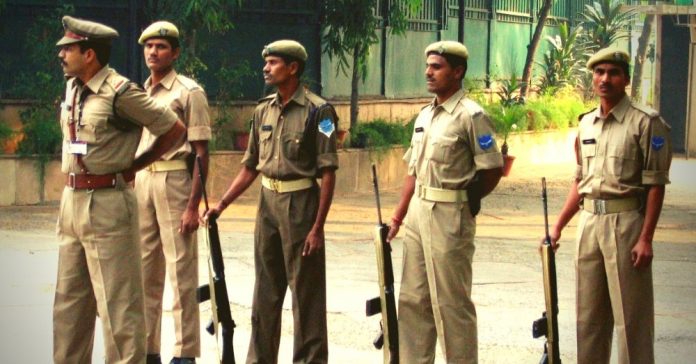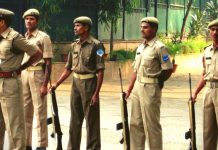This Article is written by Riya Ranjan from Lloyd Law College. This article analyses the police personality from cynic to diligence and the reason behind it. It also analyses the working reality of police in various countries and the views of different social scientists about police personality.
Table of Contents
Introduction
In recent years we have heard a great deal about the police mentality and their work culture. According to Allport, personality is a mixture of major or minor “traits” by which a single life is known. A personality trait is a biological, psychological, and social mixture that disposes of men’s actions in certain circumstances. If we go through various literature and books a typical policeman has been shown as cynical, frustrated, suspicious, and conservative.
The traits are poorly defined and the facts differ but the syndrome is always the same. According to Skolnick, these traits include skepticism, cynicism, mistrust of outsiders. However, the media have also a dominant role in influencing the public’s attitude. Mostly, the media narratives tend to be negative, they seize up the stories and highlight that an innocent person is wrongly punished due to investigation failure. The police personality is made or shaped by the experience of an officer. Thus, the development of a police personality model depends as much on the theoretical framework.
As said by Colin Macinness, Suspicion is a manifestation of deep-seated political and emotional conservatism. Ethical conduct and diversity play a large role in recruiting the attributes of potential officers. Due to society’s emphasis on ethics and the stringent hiring process, recruits are typically very ethical (Crank and Caldero, 2010). Exploration has discovered significant insufficiencies in the endeavors to recognize a police personality. The subsequent inadequacy is that almost no earlier exploration has zeroed in on the creation of the arrangement of the police personality, or to recognize the period of improvement. The third insufficiency is that previous examination has neglected to connect quantifiable personality to discernable conduct as estimated by execution.
Kelly
Our personality of the movement of an individual and our ensuing speculation of this deliberation to all issues of his relationship to different people, known and obscure, just as to whatever else that may appear to be especially significant. “Kelly’s view bolsters the idea that police personality is made or formed by the encounters of an official when he is at work.
What is cynicism in policing
Cynicism can be defined as a means to display an attitude of contemptuous distrust of motives and human nature. Cynicism does not intervene in the relationships between several independent variables and exploratory factors. The stress and frustration found in a law enforcement profession lead to an ideal breeding ground for the disorder. Police officers facing the worst of society at a daily exposure become frustrated with what they see as roadblocks to the prosecution of criminals whereas others become frustrated and cynical after unsuccessfully trying to achieve promotion.
Nowadays people measure cynicism as failing to curb the rising tide of crime. Cynicism is regarded as one of the many reasons that are attributed to this apparent failure. Major factors related to cynicism are lack of supervision, poor management, paramilitary culture, continuous organizational change, lack of interest in work, and low police morale.
Arthur Niederhoffer, the first social scientist to develop an index to measure police cynicism (Regoli, Poole, and Hewitt 1979). He tried to find the determinants of police cynicism and tested eleven hypotheses by measuring the correlation of variables educational level, age, and work duration with police cynicism.
Behrend
Police cynicism was defined as an attitude of “contemptuous distrust of human nature and motives (Behrend, 1980).
Graves
According to Graves, (1996) police cynicism is a distinct characteristic of police personality. He stated that cynicism, particularly prevalent in larger urban departments, develops as a result of burnout and stress, the emotional conditions caused largely by the excessive demands of police work. Graves felt that cynicism is largely counterproductive and ultimately harmful to, not only the individual officer but the department at large and is largely a precursor to misconduct, brutality and corruption.
The working reality of police officers in various countries
In certain countries like Britain, Ireland, Norway, Iceland, and New Zealand, officers are unarmed when they are on patrol. Police are equipped with firearms only in special circumstances. The practise is rooted in tradition that arming the police with guns engenders more gun violence than it prevents. Whereas police officers in a large urban center like New York or Los Angeles usually have a very specialized focus, such as narcotics, media relations, the K-9 unit, or the SWAT team to look into different issues.
Do democracies organize police differently?
Most recently the killing of a black man, George Floyd by a white policeman in the United States sparked a national reckoning with police brutality and systemic racism in 2020. The U.S. approach to policing differs from those of other advanced democracies countries. The number of police forces in the US so far surpasses those in other advanced democracies. Countries like Sweden, have a single national force organized and overseen by the federal government while others have a few national forces with differing responsibilities. The United States has about 18k law enforcement agencies, including local, state, and federal police forces whereas Canada, which administers policy at the municipal, provincial, and federal levels, has less than three hundred law enforcement agencies.
The European Convention on Human Rights (ECHR) entered into force in 1953 and the Council of Europe currently has 47 member states. As mentioned in Article 2 (right to life) or 3 (prohibition of torture) of The European Convention of Human Rights, there should be no institutional or hierarchical connections between investigator and officer and there should be no practical independence. Articles 12 and 13 of the United Nations Convention Against Torture (UN, 1984) are aimed at preserving public trust and confidence in the rule of law. The Council of Europe Declaration on the Police was adopted by resolution 690 of the Parliamentary Assembly of the Council of Europe. The ECHR provides for a protective mechanism in the form of a court, the European Court of Human Rights.
In Asian countries, there are no conventions, communal treaties, and codes shared by police officers and agencies of different states in the region. The lack of a regional inter-governmental body to discuss the need for such a common legal framework for the police. In many Asian countries, the relative lack of police independence from political powers is also seen as a barrier to creating such a regional policing body.
However, different international and regional organizations contribute to the development of Asian countries not only in terms of the economy but also that of governance, human rights, and civil rights including mechanisms for the government including the police. Since 2009, the Asia Foundation has been working with local leaders, community groups, and the Sri Lankan Police Service to implement community policing programs that foster positive relationships between police and communities.
The ‘us’ versus ‘them’ between citizens and police
Twersky-Glasner (2005) considers, the police are members of a unique occupation in which they are the insiders and the rest of society are the outsiders. The insiders are treated as trustworthy while outsiders are treated as traitors and suspicious. It takes countless efforts to build trust between officers and the community. But many of these efforts are grounded due to democratic policing. The difference of power between the police officials and the commoners builds a kind of superiority in their relationship.
“Us versus them” describes police officers’ feeling of isolation from the general public. Mostly this results from high profile incidents of police misconduct, negative portrayal of police through media, and negative police-civilian interaction that creates differences between the two communities. The engagement in democratic policing can positively impact officer well-being by reducing the stress of “us versus them dynamics,” mitigating negative affect through positive engagements with communities.
Fear of police
The image of the police is described as brutal and highly corrupt, this negative image creates the difference and negativity in the mind of commoners. Police personnel is said to be corrupt and they aggressively misuse their powers for personal gain. Today the situation is such that the police officers are accused of serious criminal offences from brutality to extortion, helping politicians frame or eliminate opponents. Their negative image creates fear in the mind of common people.
Police discrimination
We found that just around 7% believed that police either separates once in a while or doesn’t segregate by any means, 13% fell in the classification of the individuals who felt that it separates seldom, 67 % or more than 66% of police segregates to some degree and 9 % or almost one-tenth were found to see the police as being exceptionally unfair. We additionally attempted to discover how every one of the 22 states where the study was led fared regarding this thorough separation discernment index.
The states were positioned based on summated scores that were shown up after relegating various loads to every one of the Index classes West Bengal, Chhattisgarh and Odisha fared the best – respondents in these three states were most drastically averse to see the police as being oppressive contrasted with different states. Then again, Bihar, Jharkhand, and Haryana fared the most exceedingly terribly with respondents here being destined to see the police as being prejudicial in its working.
Why is cynicism a challenge for police
The current thought of police personality is a long way from the thought of three or forty years back, that of the glad cop, the well-disposed official strolling the beat, halting to unwind a kid’s kite from a tree or to address a teenager about remaining out past the point of no return.
Nowadays, a large number of people consider cops as admired super cops like the Mel Gibson personality in the “Deadly Weapon” films or as the ruthless, vicious cops like the Denzel Washington personality in the film “Preparing Day.” Mainstream society just as the media shape our view of what cops resemble and how they carry on. This kind of expectation became challenging for the police and when these expectations don’t meet people start criticizing.
Underscoring every one of these inadequacies is the reason that personality is created on a continuum; to be sure it is a unique cycle. Hence, the improvement of a police personality model depends as much on the hypothetical structure of the personality hypothesis as on the acknowledgment of the phenomenal professional adventures one of a kind to policing.
Advantages and disadvantages
There are certain advantages and disadvantages of police personality for both community and cooperation. The advantages of cooperation are in having a wider range of authority in criminal activities and increased time deterrents. Specially empowered security officers to address crime against private businesses. On the other hand, the disadvantages of such authorities or power risk their social stigma. The limited constitutional restraints on security employees increase the liability of government entities and the risk of inequitable enforcement and expanded administrative responsibilities.
The study tested the relationship between police cynicism and the police’s attitude to organizational change. There are various factors such as age, race, length of service, and rank that affects or are relevant in determining police cynicism. On one hand, it is very stressful and dangerous work on the other hand it has a pretty high reputation in society. But nowadays it takes only a single case to spoil this high reputation. Especially the media trial and the wrong allegations that are seized up and shown by the media in a very manipulative way affect them mentally. The social pressure and stigma made their behavior cynical and conservative.
Police cynicism is also related to the fear and acceptance of the change. Corruption is also the most serious when the climate in the police department permits the existence of any kind of corruption. The acceptance of bribes from different kinds of criminal deals in gambling, prostitution, illegal drinking, and the illegal use of the drug. Police corruption undermines the reputation and destroys respect for the law and harms police morale.
Critical analysis
Police work is a dangerous and distressing interaction that can create maladaptive coping behavior. Opposing as it might sound, the normal Indian reports maltreatment of power and defilement in the police at the same time as a general fulfillment with their everyday work.
This is extensively reliable with a worldwide pattern about people groups’ view of their police. This is thus, maybe, because while being irritated with the law for reasons unknown, an individual can likewise at the same time put stock in the real authority of law. This, in any case, doesn’t lessen the person’s dread from the police.
The study attempts to determine this conundrum by examining the residents’ dread of the police as per the state they live in or the standing, network, or strict gatherings they have a place with. A critical piece of the overview has additionally been dedicated to looking at the distinction between the rich and the poor just as among rustic and metropolitan people. On numerous boundaries, the consequences of the examination may not be stunning or emotional however they give positive insights into the mentalities and impression of the different public versus the police just as each other.
The inquiries and pointers in the examination have been kept straightforward and equivalent while the strategy is straightforward yet nuanced and thorough. For strategy creators, media people, researchers, and activists, the information introduced here will ideally give significant experiences into policing in India. It will likewise respond to some old inquiries, raise some new ones, and work as a structure block for more exploration. The pointers enlighten lay peruses something concrete regarding trouble spots in the standard of law in India and the course in which we are going.
The investigation offers a decent occasion to the heads of states which perform inadequately, or where the people groups’ trust in law requirement is extremely low, or where the dread of the police is curiously high, to utilize the information to introspect or to take exercises from their better-performing neighbours. We trust that people with great influence will utilize the experimental proof to find a way to improve things in their wards or territories of impact and those in the resistance would request significant changes.
Conclusion
Ethical codes of policing will not work unless there are realistic, explicit, and detailed professional norms that have a high degree of acceptance and ownership throughout the organization. The distinction in trust and fulfilment levels gets starker, for example, when one converses with the general public’s impeded areas who are bound to be casualties of avoidance and procedural treachery.
It is significant, along these lines, to look at the issues of public collaboration and consistency with the law just as those of police overabundances and abominations from the perspective of poor people and the weak segments. What’s more, that is the reason this examination endeavours to take advantage of the subtleties of the public recognition dependent on the encounters, all things considered, independent of standing, class, and sexual orientation, however more especially of customarily hindered areas.
References
- https://www.commoncause.in/pdf/SPIR2018.pdf
- https://www.washingtonpost.com/news/worldviews/wp/2015/02/18/5-countries-where-police-officers-do-not-carry-firearms-and-it-works-well/
- https://www.researchgate.net/publication/342152000_Democratic_Policing_and_Officer_Well-Being
LawSikho has created a telegram group for exchanging legal knowledge, referrals and various opportunities. You can click on this link and join:
 Serato DJ Crack 2025Serato DJ PRO Crack
Serato DJ Crack 2025Serato DJ PRO Crack











 Allow notifications
Allow notifications



Amazing work and explained well?